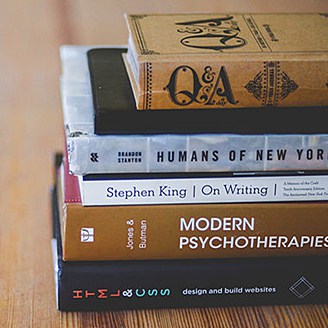May 2, 2023

Kathy Kuhl
Marketing & PR Coordinator
Recently I found myself stunned into silence by a friend who declined to share her troubles with me, instead making veiled references to them. I couldn’t put my finger on why this bothered me. At the time, we just changed the subject.
Long ago, I felt I “dumbly” listened to a friend as she cried to me upon being diagnosed with breast cancer. I felt uneasy about my lack of advice, but after her first two years of remission, I was one of the few people with whom she stayed friends. I had no words for this.
 Last month, in MPL’s new non-fiction titles, I spotted a book titled Toxic Positivity: Keeping It Real in a World Obsessed with Being Happy by Whitney Goodman (@sitwithwhit on Instagram), a psychotherapist. The very title resonated with me. The book has, too.
Last month, in MPL’s new non-fiction titles, I spotted a book titled Toxic Positivity: Keeping It Real in a World Obsessed with Being Happy by Whitney Goodman (@sitwithwhit on Instagram), a psychotherapist. The very title resonated with me. The book has, too.
Why? This book verbalizes concepts I feel have been missing in social discourse. Goodman’s insights helped me identify how frequently I hide my emotions from the world – everyone – because I feel I would be condemned for being so “negative.”
I have a family member who is struggling with many things lately, and I have been guilty of pushing the “positivity” concept of gratitude journaling and being discouraged by this person’s failure to “move on.” I have not been patient, and have pushed a trend I don’t like. No more of that!
Goodman recognizes that people with chronic illnesses – like me – struggle because of toxic positivity. She also lists people who have historical, societal disadvantages: being female, non-white, non-binary, gay, having a disability, living at or below the poverty line, etc. She writes that success stories among these populations are popular. For instance, we focus on stories of people who cheerfully, bravely combat a debilitating injury or illness. She calls it “survivor porn.” Focus on these success tales is a non-acknowledgement of the struggle with circumstances and the social order. Society tells people living in unfavorable circumstances to avoid being “negative.” If they are unhappy, the implication is they are not trying hard enough.
We need to stop and listen to other people without making comparisons to our own experience. We need to cease offering platitudes (like “It could be worse.”), which are basically a way to shut down conversation and signal that the person who is trying to express grief, frustration – a “negative” emotion – should shut up.
We also need to be willing to represent our not-best selves on social media and in the world at large. We want to choose wisely with whom we share a lot, but we should recognize life’s problems and work through them – which often means sharing them – instead of ignoring them.
Goodman relates how people are wired to be negative. Back when life-or-death situations were more common, easy-going early humans were less likely to pass on their genes than those who were vigilant. Looking at the negative is still important. When we feel our feelings and process them, it helps us solve problems. Modern expedience has negative consequences on human relationships and mental health. We need to clear our minds, open our ears and hearts, and be human with the humans around us.
I now realize why it hurt to have my troubled friend gloss over her issues: It made me doubt she trusts me. Next time, I will invite her to talk more, then or later.
I also know why my cancer-surviving friend chose me over the advice-givers who surrounded her. I simply listened. I offered to help in any way she chose. I gave her the space she wanted.
If you want to increase “positivity,” listen when someone needs a listener. When you need to complain or process feelings, find the right audience. Life is complicated, but knowing who your allies are and being real are a couple of great starting points.
Other useful titles to explore: The Myth of Normal: Trauma, Illness and Healing in a Toxic Culture by Gabor Mate, The Power of Regret: How Looking Backward Moves Us Forward by Daniel H. Pink, and Bittersweet: How Sorrow and Longing Make Us Whole by Susan Cain.
“What I’m excited about right now’ features one library employee at a time talking about books, music, hobbies, work or other activities that are currently on their mind and have their attention. This blog is also featured in the MPL monthly newsletter.
